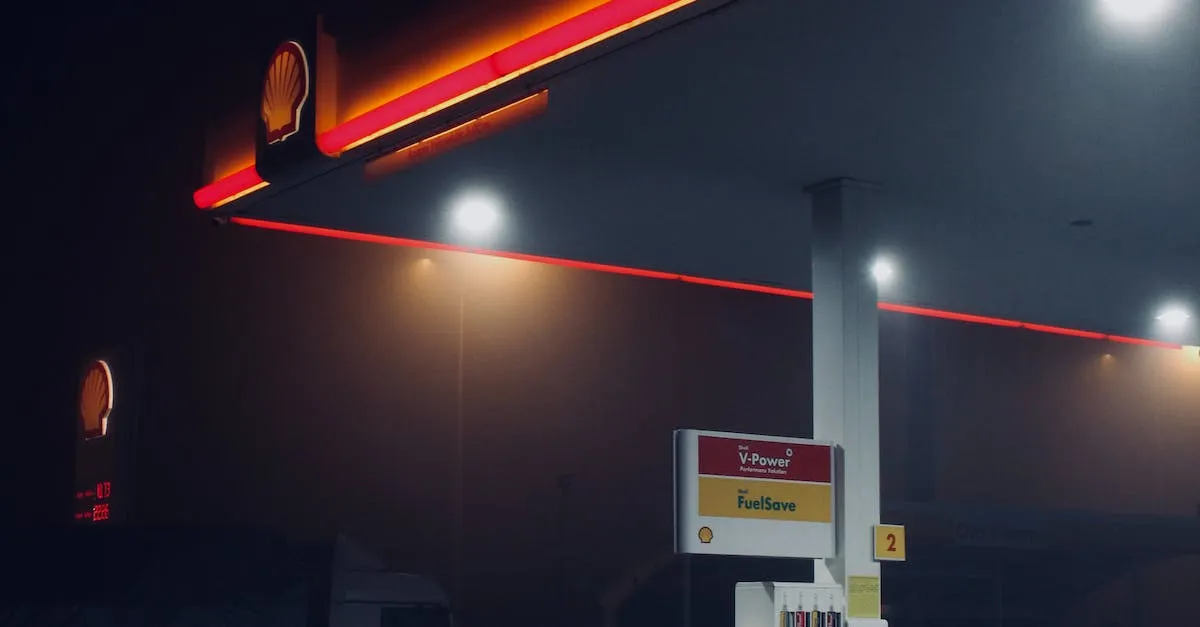Why Is Gas Cheaper In Texas?
As gas prices reach painful new records across the U.S., drivers in Texas have found an island of relief at the pump. Lone Star State gas taxes remain among the lowest in the nation, averaging just $0.38 per gallon versus $0.65 in California. If you’re short on time, here’s a quick answer to your question: Gas is cheaper in Texas primarily thanks to ample oil production, low taxes and fees, smooth transport from Gulf Coast refineries, and limited blending mandates compared to strict regulations in other states. This comprehensive guide examines the unique advantages that have historically kept Texas gas prices below the national average.
We’ll analyze the state’s oil and gas resources, efficient distribution infrastructure, competitive retail market, lower taxes and fees, and regulatory climate to explain why filling up costs less, on average, for Texas drivers.
Texas is a Major Oil and Gas Producer
Texas, often referred to as the “energy capital of the world,” is one of the largest producers of oil and gas globally. The state has a long history of oil production, dating back to the famous Spindletop discovery in 1901.
Today, Texas continues to play a significant role in the energy industry, contributing to the abundance of gas and lower prices within the state.
Huge supply from Permian Basin fields
One of the main reasons why gas is cheaper in Texas is the enormous supply coming from the Permian Basin fields. The Permian Basin, located in West Texas and parts of New Mexico, is one of the most prolific oil and gas regions in the world.
It boasts vast reserves of oil and gas, which have been continuously tapped into using advanced extraction techniques.
The abundance of gas from the Permian Basin fields creates a surplus, leading to lower prices for consumers in Texas. With such a vast supply, the state is able to meet its own demand while also exporting gas to other regions, further contributing to the availability and affordability of gas within Texas.
Conventional and shale production techniques
Texas utilizes both conventional and shale production techniques to extract oil and gas. Conventional methods involve drilling vertical wells into underground reservoirs, while shale production involves hydraulic fracturing, or fracking, to extract gas from shale rock formations.
The combination of conventional and shale production techniques allows Texas to access a wide range of resources. This diversity in extraction methods contributes to the overall abundance of gas in the state, resulting in cheaper prices for consumers.
High drilling activity and investments
Texas experiences high drilling activity and investments in the oil and gas industry. The state attracts significant capital investments from companies looking to take advantage of its vast resources and favorable business environment.
The high drilling activity, coupled with continuous investments, leads to increased production and a steady supply of gas. This competition among drilling companies also helps drive down prices, benefiting consumers in Texas.
Gulf Coast Refineries Supply Texas Gas Stations
One of the main reasons why gas is cheaper in Texas is because of the abundance of refining infrastructure located near the oil fields in the Gulf Coast region. Texas is home to several major refineries that have the capacity to process large amounts of crude oil into gasoline and other petroleum products.
This proximity to refineries allows for a more cost-effective production process, resulting in lower prices at the pump for consumers.
Abundant refining infrastructure near oil fields
With numerous refineries located in close proximity to the oil fields in the Gulf Coast region, Texas has a significant advantage in terms of gasoline production. This abundance of refining infrastructure allows for efficient processing of crude oil into gasoline, reducing transportation costs and improving overall supply chain efficiency.
As a result, Texas gas stations can access a steady and reliable supply of gasoline, which helps keep prices competitive.
No imported gasoline required
Unlike some other states, Texas does not rely heavily on imported gasoline to meet its fuel needs. The state’s ample refining capacity enables it to produce enough gasoline to meet local demand, reducing the need for costly imports.
This self-sufficiency in gasoline production helps to keep prices lower compared to states that rely more heavily on imported fuel.
Easy distribution from coast to population centers
Another factor that contributes to the lower gas prices in Texas is the ease of distribution from the Gulf Coast refineries to the state’s population centers. Texas has an extensive network of pipelines and transportation infrastructure, allowing for efficient and cost-effective distribution of gasoline from the refineries to the gas stations.
This streamlined distribution process helps to minimize transportation costs, which in turn helps to keep prices lower for consumers.
Texas Has Among the Lowest Gas Taxes Nationwide
One of the main reasons why gas is cheaper in Texas compared to other states is due to its low gas taxes. Texas has consistently ranked among the states with the lowest gas taxes in the country. This is great news for Texas residents who rely on their vehicles for daily transportation.
No state sales tax on gasoline
In Texas, there is no state sales tax on gasoline. This means that when you fill up your tank, you only pay for the actual cost of the fuel without any additional taxes. This helps to keep the price of gas lower compared to states that impose a sales tax on gasoline.
Relatively low fixed-rate gas tax
Texas also has a relatively low fixed-rate gas tax. As of 2021, the state gas tax in Texas is 20 cents per gallon, which is significantly lower than the national average. This lower tax rate helps to keep the overall cost of gas lower for Texas residents.
Few special environmental fees
Additionally, Texas imposes fewer special environmental fees on gasoline compared to some other states. These fees are often used to fund environmental initiatives or to address pollution concerns. By not burdening consumers with excessive environmental fees, Texas is able to keep the price of gas more affordable.
It is worth noting that the low gas taxes in Texas are just one factor contributing to the cheaper gas prices. Other factors, such as proximity to oil refineries and production centers, can also play a role in determining the price of gas in a particular area.
If you want to learn more about gas taxes in Texas and how they compare to other states, you can visit the American Petroleum Institute, which provides detailed information and statistics on gas prices and taxes across the United States.
Established Pipelines and Competition Keep Prices Down
One of the key reasons why gas is cheaper in Texas is due to the state’s direct access to major oil pipelines. Texas is home to several major oil refineries and has an extensive network of pipelines that transport oil and gas across the state.
This direct access allows for a more efficient transportation of gas, which helps to keep prices down.
Direct access to major oil pipelines
Texas has a strategic advantage when it comes to accessing major oil pipelines. The state is located in close proximity to the Gulf Coast, where many oil refineries are situated. This proximity allows for a more direct and cost-effective transportation of gas from the refineries to the consumers in Texas.
As a result, the transportation costs associated with delivering gas to Texas are lower compared to other regions, leading to lower gas prices for consumers.
Many wholesale and retail suppliers
Another factor that contributes to the lower gas prices in Texas is the presence of numerous wholesale and retail suppliers. The state has a competitive market with a wide range of suppliers, both at the wholesale and retail levels.
This high level of competition encourages suppliers to offer competitive prices in order to attract customers. Additionally, the presence of multiple suppliers gives consumers more options to choose from, allowing them to find the best deals and prices for gas.
Prevalent price competition
In Texas, price competition among gas suppliers is prevalent. With a large number of suppliers vying for customers, there is a constant pressure to offer the best prices in order to stay competitive. This competition benefits consumers as it drives down prices and ensures that they have access to affordable gas.
Retailers often engage in price wars, offering discounts and promotions to attract customers. As a result, consumers in Texas can enjoy lower gas prices compared to other states.
Texas Avoids Stricter Fuel Mandates
One of the main reasons why gas is cheaper in Texas compared to other states is because Texas avoids stricter fuel mandates. These mandates, which are imposed by some states, require the use of special fuel blends that are more expensive to produce.
In Texas, however, no special fuel blends are required, allowing for a more cost-effective production process.
No special fuel blends required
Unlike many other states, Texas does not have any mandates in place that require the use of special fuel blends. These blends, such as those designed to reduce emissions or increase fuel efficiency, often come at a higher cost.
By avoiding these mandates, Texas is able to produce and sell regular gasoline at a lower price, providing relief to consumers at the pump.
Flexibility on vapor pressure limits
Another factor that contributes to cheaper gas prices in Texas is the state’s flexibility on vapor pressure limits. Vapor pressure refers to the volatility of gasoline, and different regions have different regulations in place regarding its limits.
In Texas, the vapor pressure limits are more lenient compared to other states, allowing for a wider range of gasoline formulations. This flexibility in regulations helps to keep production costs down and ultimately leads to lower gas prices for consumers.
Less red tape for new gas stations
Texas also has less red tape when it comes to opening new gas stations. The state has regulations in place to ensure safety and compliance, but the process is generally more streamlined and less burdensome compared to other states.
This means that entrepreneurs and investors can more easily enter the market, increasing competition and driving prices down. The abundance of gas stations in Texas helps keep prices competitive and affordable for consumers.
Conclusion
Texas gas prices have remained remarkably resilient thanks to the state’s natural bounty of oil reserves, dominant refining complex, accommodating tax structure, efficient distribution network, and flexible fuel regulations. With transportation costs ballooning nationwide, Texas is likely to maintain its relative price advantage for the foreseeable future.
Yet the gap between Texas and the most expensive states may narrow if more drivers shift to electric vehicles or consumption declines amid economic uncertainty. For now, the Lone Star State remains a welcome gas oasis for road trippers and commuters across the region.








